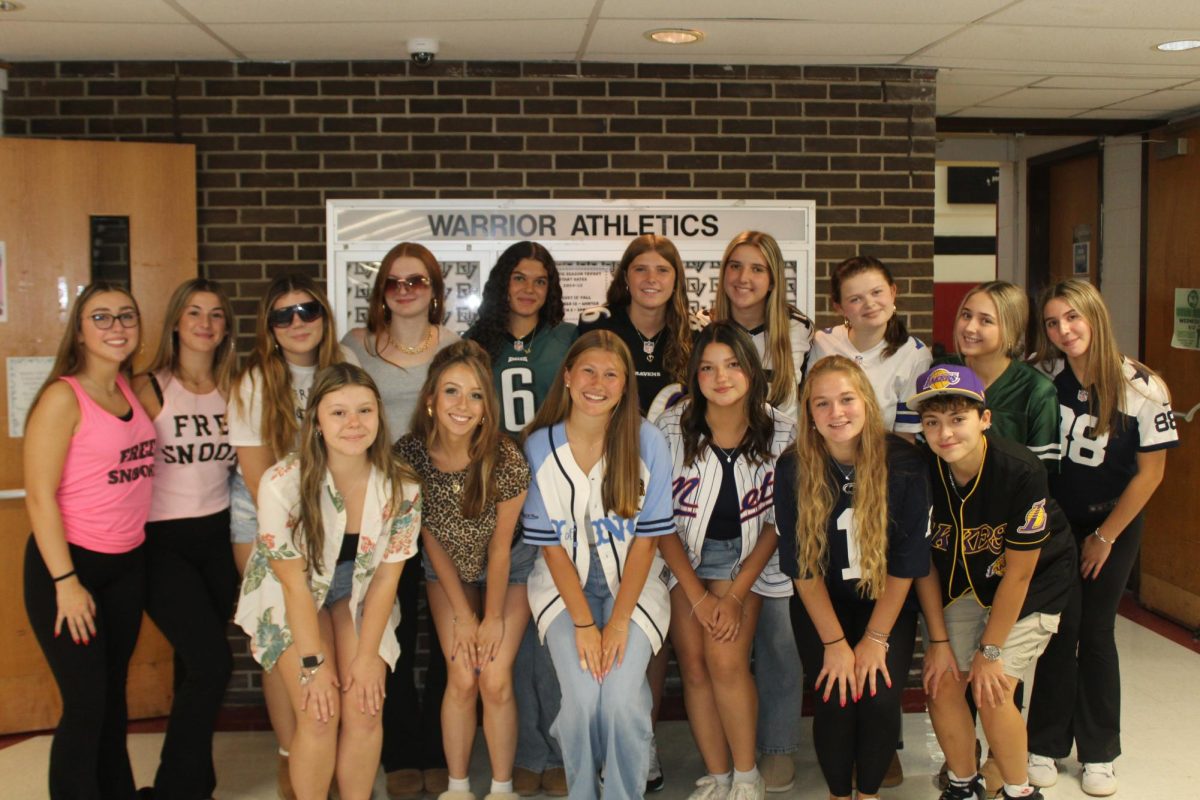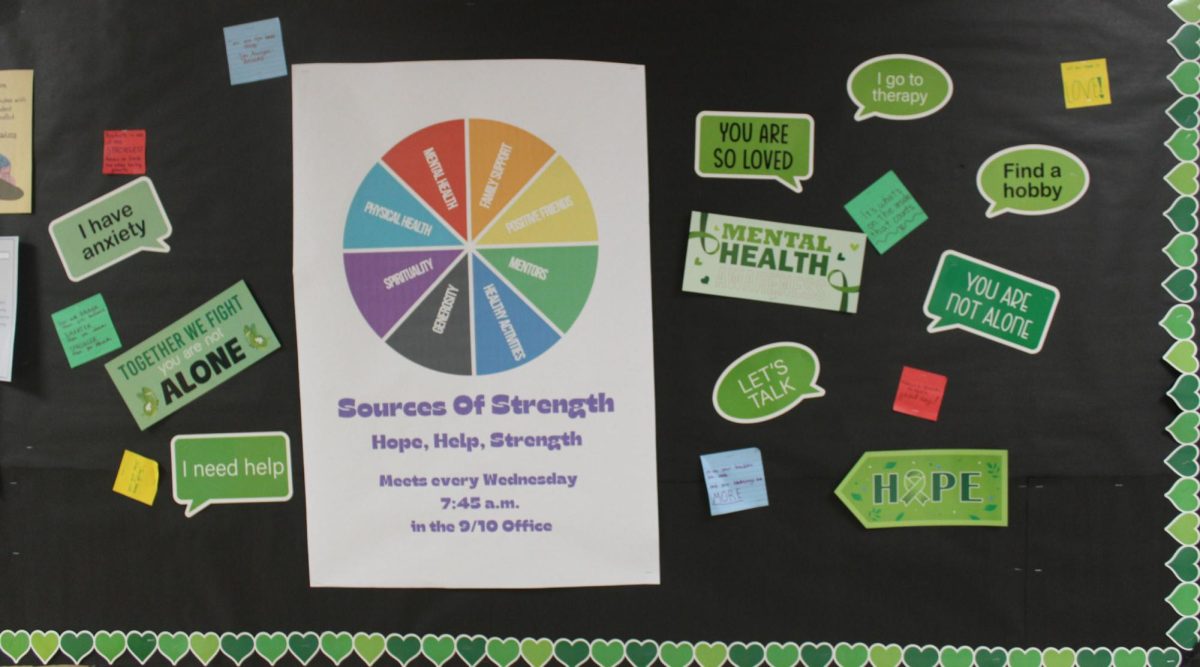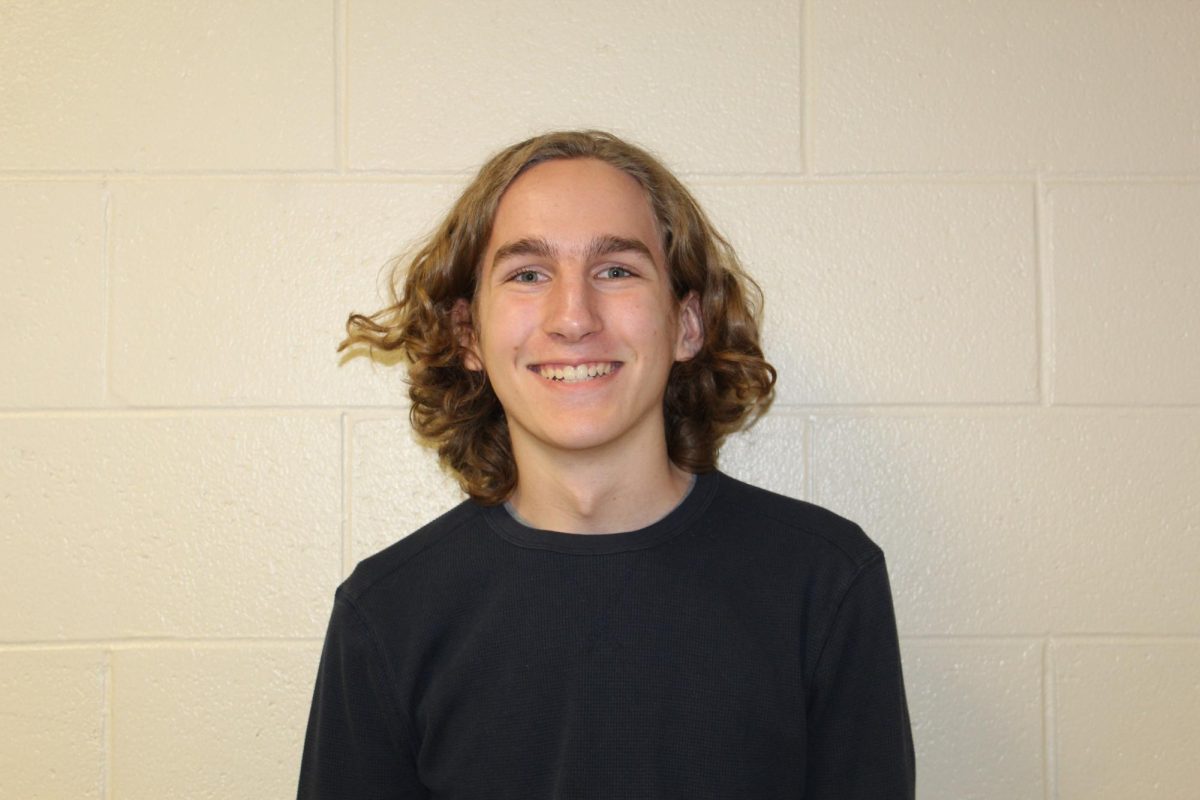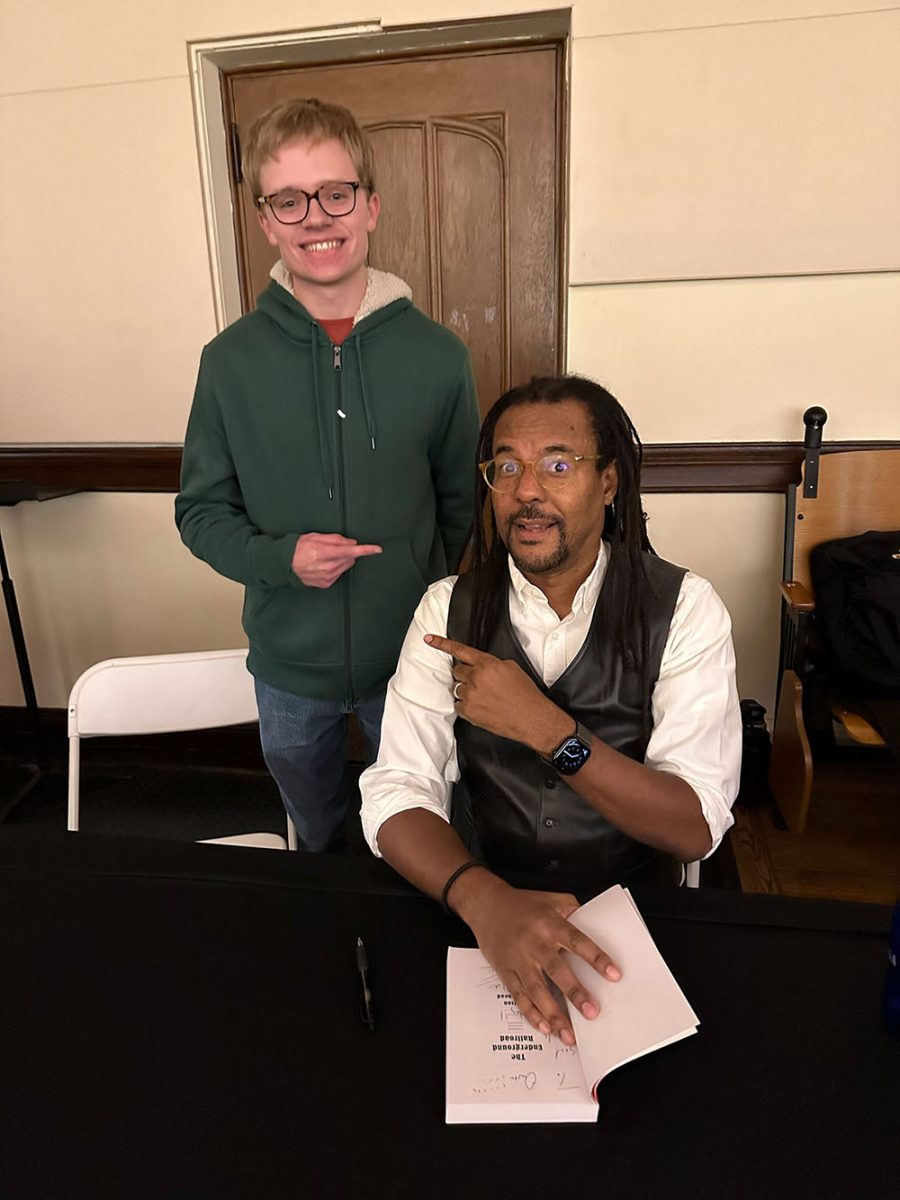Sports psychologist Dr. Jarrod Spencer came to talk to 9-12 grade students on April 2. He started his presentation by getting up on stage with an energetic and passionate attitude, having everyone stand up and stretch. He followed that with an activity, which encouraged healthy competition.
Dr. Spencer repeated his signature message throughout the presentation, “Clearer mind, better performance.” He believes that when people’s thoughts are focused and free from distractions, you can think more clearly and perform tasks more effectively. He believes his words have impacted many students in changing their ways of thinking.
“Whenever I speak, I can see the look in people’s eyes that they are resonating with the content and that they are so grateful that somebody has spoken up about it,” Dr. Spencer said. “It’s that look in their eyes that lets me know that all of this was worthwhile.”
A major part of his presentation was comparing the mind to an iceberg in the ocean, separating it into three sections: conscious, preconscious and unconscious mind. He additionally gave numerous examples of what goes on in each part. He believes that anxiety, pressure and trying to calm down nerves are the toughest components of being an athlete today.
Leaving the presentation, Dr. Spencer’s goal was for students to know that they are not alone with their struggles of mental health and that there is hope.
Dr. Spencer is not just a sports psychologist, but also an author and speaker. He is a licensed psychologist in over five states and has expressed how much he likes helping people with practical skills to improve their mental health. His passion is in the fields of health psychology, neuroscience and peak performance.
“I started off working in hospitals, but then started working with athletes and found it more fun, so I went fully on board with sports psychology,” Dr. Spencer said.
He travels frequently all over the country working on improving the emotional health of athletes, students and even adults. Though traveling seems like a great thing, Dr. Spencer claims it can be a bit exhausting.
“It’s a lot of nights and weekends, particularly with sports,” Dr. Spencer said. “It’s seasonal too, so in the summer I have a lot of downtime which is nice, but during the school year it can be a bit much.”
Dr. Spencer is on his third book, “Emotional Energy: Your fuel for better health and performance,” which he plans to release this summer.

























